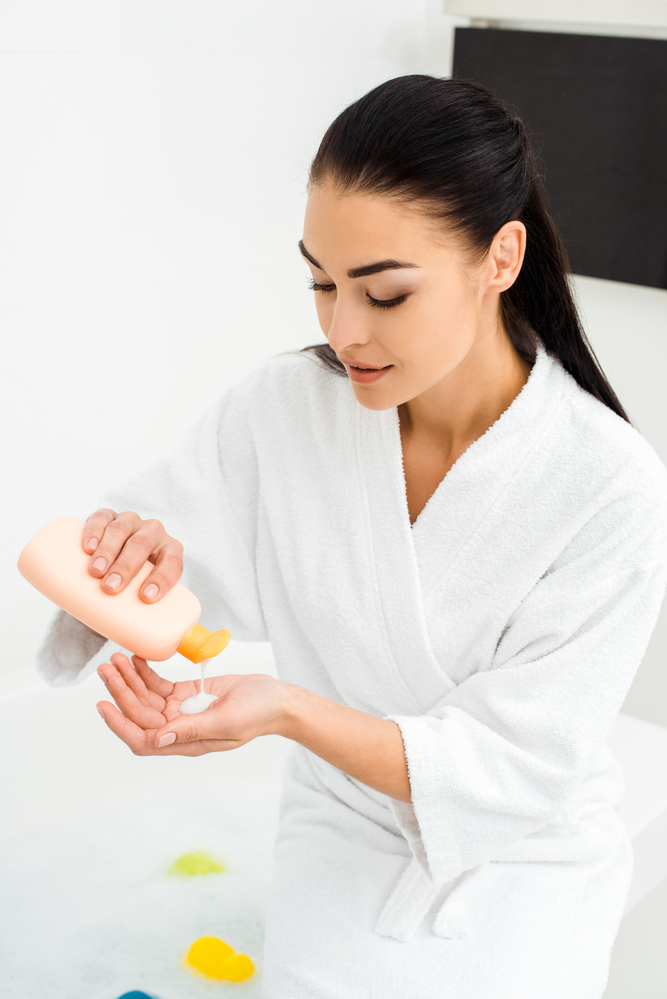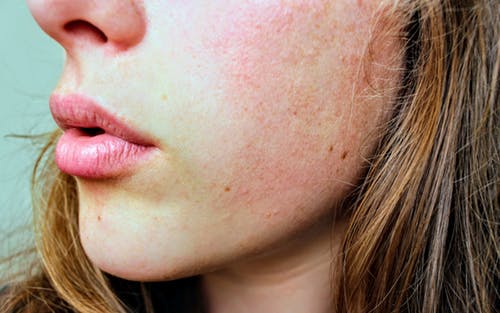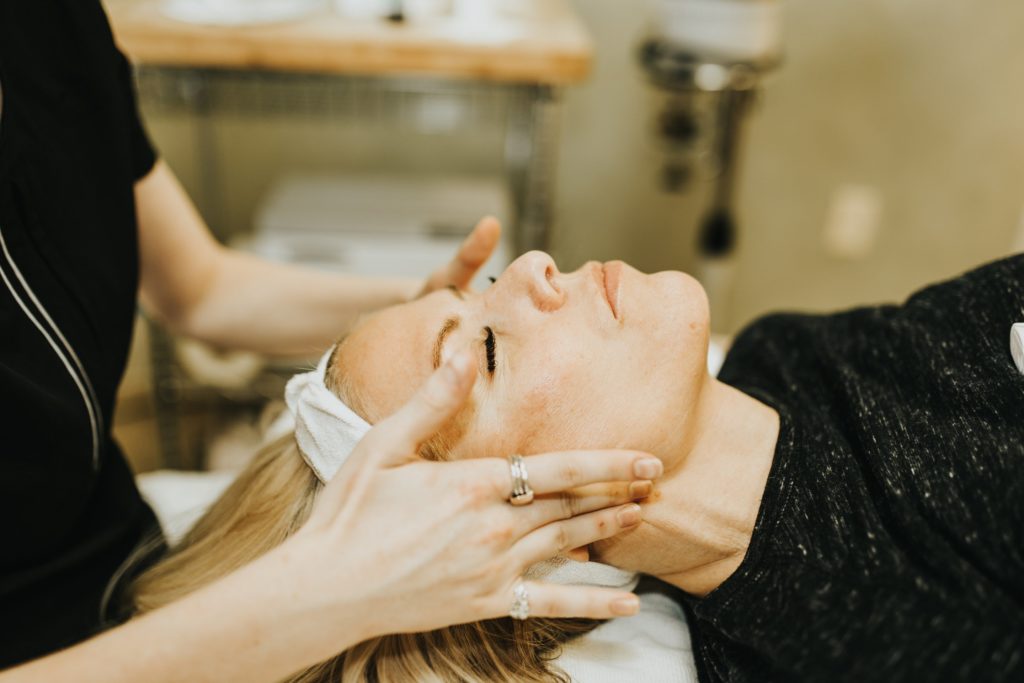These two terms related to skincare are often words that people use interchangeably, but there are differences between dry skin and dehydrated skin. Because of these differences, there are different ways to care for these skin conditions. Dealing with dry skin and dehydrated skin can be helped by visiting a dermatologist or a licensed esthetician at The Skin Institute.

The Difference
The main difference and indicator between dry skin and dehydrated are that dehydrated skin lacks water, while dry skin lacks oil. While they may have similar symptoms they have differences in how they appear on your skin.
Dehydrated skin can be tested at a clinic and uses a pinch test to check the elasticity of the skin. You can also do this test at home and see if your skin wrinkles with gentle pressure instead of holding its shape. Another test can be done using a corneometer to test the hydration levels of the skin, not just if it is hydrated or not.
If your skin is dry, you will have symptoms like roughness, itchiness, and flaking. General discomfort is a sign of dry skin. These can be treated with moisturizers. Dry skin leads to cracking in the skin which makes your skin more prone to infections and greater exposure to the lower layers of skin.
Treating And Prevention Of Dry Skin
Preventing dry skin can start with reducing how much time you spend in the water and reducing the temperature of your water. Taking lukewarm baths and showers can help your skin retain oil. Using natural soaps that contain oil can help keep your skin hydrated, especially after your bath or shower.
If you experience dry skin, using the right moisturizer and lotions is important. Using raw ingredients can soften the skin and add moisture. One ingredient that you can start with is coconut oil, which is natural and less sticky for your skin.
If your skin barrier is damaged, it will not be able to protect your skin properly. Using antioxidant-rich products and eating antioxidant-rich foods can help improve your skin barrier. Serums that include hyaluronic acid can help strengthen the skin.
Nighttime skincare routines can help to treat both types of skin conditions. Using the right products for your condition is important though. If you have dry skin, make sure that you are using products that are oil-based. Dehydrated skin needs water-based products. Topical treatments for both are similar though, so if you are not sure which condition you have, using a moisturizer is better than nothing at all, until you can decide what condition your skin is experiencing.

Treating And Prevention For Dehydration
The most obvious reason for dehydrated skin is a lack of water for the rest of your body. But other things like excessive sweating, sunburn, diabetes, or fever can cause this skin condition. Adding more electrolytes to your diet and daily liquid intake can help to prevent and heal dehydrated skin. You can also help prevent dehydration by drinking less alcohol, getting more sleep, and eating moisture-rich foods.
Hydration can also come from water-based moisturizers and add back those important water molecules to your skin. Eating foods such as cucumber, lettuce, tomatoes, or watermelon is high in water and can increase your water intake, which helps the hydration of your skin.
Skin that is dehydrated can also be a sign of premature aging and can be treated with more vitamin A and hyaluronic acid. Because the skin is less elastic as it ages, helping to improve the strength of the skin can help your skin look less dehydrated.

The Skin Institute
Our esthetician school wants to help all people have great skin. Our estheticians learn about many different skin conditions, how to work with acne, what skin layers look like, and how to treat sunburns. Working with a licensed esthetician can help you gain healthy advice for your skin, while also receiving cosmetic treatment to help improve the look of your skin.
Located in St. George, UT, The Skin Institute can help you to relax and have glowing skin. We offer courses for basic esthetics and master esthetics that can help our students grow their skin care careers. Our students want to help customers experience anti-aging benefits and love the skin they are in. Contact us today to help improve your skin.
